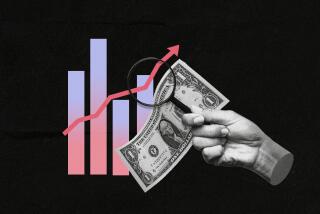Report Finds Elderly Gaining, Minorities Losing in the Boom
WASHINGTON — Older Americans are healthier, wealthier and better educated than ever, but many members of minority groups are missing out on the unprecedented boom, according to a comprehensive government report released Wednesday.
Within 30 years, one in five Americans--70 million people--will be over 65, and almost 400,000 may have turned 100, as the baby-boomers born between 1946 and 1964 reach retirement age, according to the first study by a consortium of government agencies.
“Older Americans 2000: Key Indicators of Well-Being” continues to debunk the fading myth that the growing legions of elderly are living in poverty and ill health. An American woman who could only hope to live to the age of 51 in 1900 can now expect to celebrate her 79th birthday. Men have seen their life expectancy soar from 48 to 74.
Fewer old people than children now live below the poverty line. The proportion of seniors living in poverty has declined from 35% in 1959 to 11% in 1998. That is because of better Social Security and pensions, improved health care and higher levels of education, said Richard Suzman, associate director for behavioral and social research at the National Institute on Aging, one of the nine agencies that contributed to the report by the Federal Interagency Forum on Aging-Related Statistics.
But despite decades of progress, inequalities between racial and ethnic groups are starkly highlighted in the report, which gathers information from more than a dozen national data sources for the first time.
Many minorities have missed out on the trend toward better education, a key to improving economic status. The report shows that in 1998, about 72% of non-Latino whites aged 65 and older had finished high school, compared to 44% of older blacks and just 29% of elderly Latinos.
Although the median net worth in households headed by people 65 and older increased by 69% between 1984 and 1999, half of older black households were worth less than $13,000 last year, once debts were subtracted from the value of real estate, stocks, bonds and other assets. That compared to a median net worth of $181,000 in older white families.
More to Read
Sign up for Essential California
The most important California stories and recommendations in your inbox every morning.
You may occasionally receive promotional content from the Los Angeles Times.










